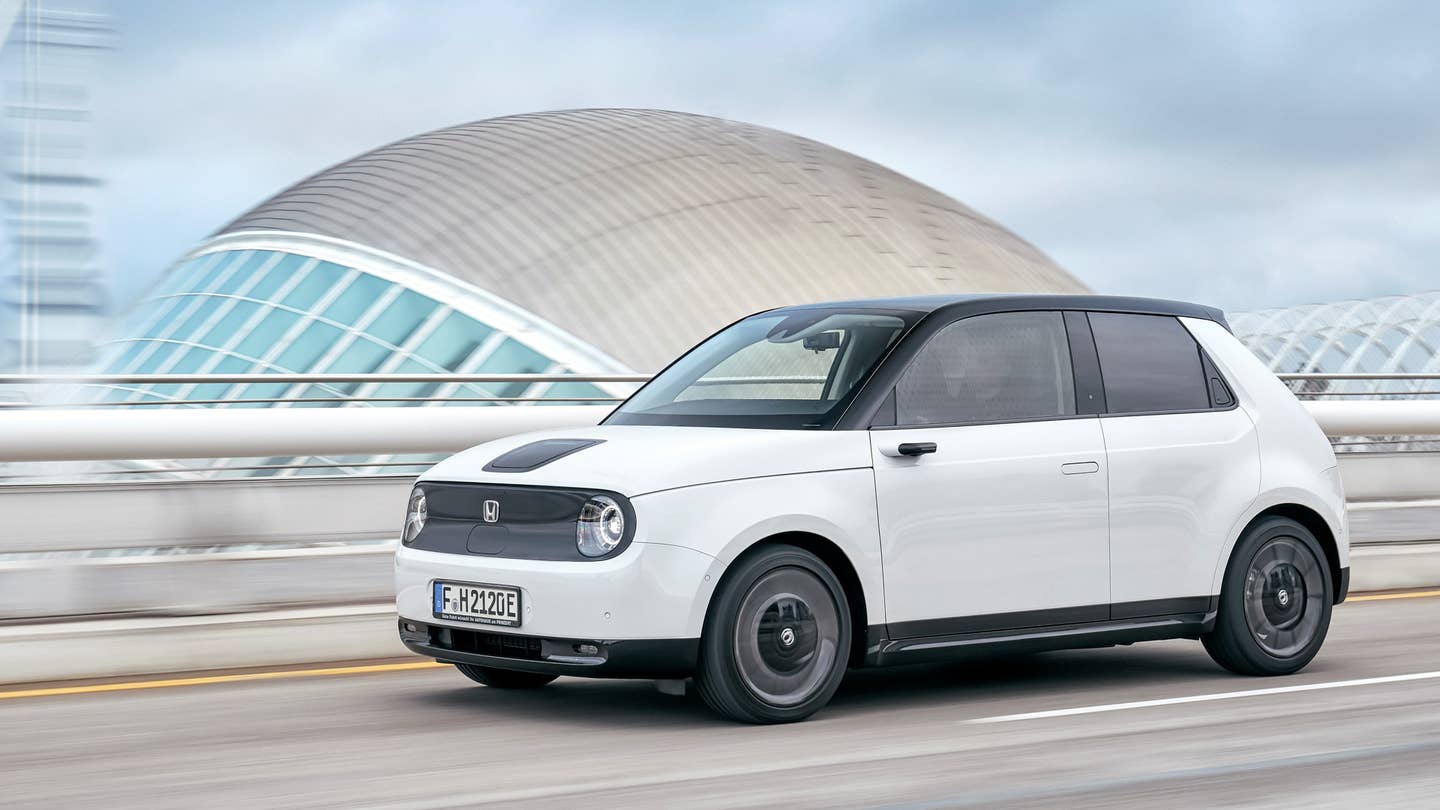Honda Exec Says Lithium-Ion EVs Won’t Ever Be as Cheap as Gas Cars
Instead, Honda’s betting on solid-state batteries to make EVs affordable.

Acura's first EV, a GM-codeveloped SUV, is finally on its way, and it's likely the expensive lithium batteries inside it mean it'll cost more than a similar ICE SUV, according to the Vice President of Business and Sales for American Honda Dave Gardner. He told The Drive last week that current battery technology won't reach the affordability it needs for cost parity with existing ICE vehicles, and instead, Honda is betting on solid-state batteries.
While all mass-market electric cars currently for sale currently use some form of lithium-ion battery for power storage, Gardner said "We [Honda] don't really believe that the current lithium-ion technology is the long-term solution." Instead, Gardner said that solid-state batteries, a still-developing technology that's only been used in a few prototype EVs, are going to be "the game changer for us," as it will allow for lower-priced EVs that are "in the neighborhood of what a nice [ICE] vehicle costs." While he admits that solid-state batteries are "not around the corner", he also said Honda is actively working on their development and has increased its R&D efforts into them, and is now attempting to do small-scale tests. And those small-scale tests keep getting bigger: Honda announced Monday that it is investing $310 million into an experimental production line project to test mass production of solid-state batteries.
Honda isn't alone, either, as the entire industry has had to grapple with the same problems Gardner discussed. While lithium-ion batteries have gone from a staggering $1,200 per kWh of power stored to a much more reasonable $132/kWh over the past decade, the raw materials needed to construct them have been subject to supply-chain issues and questionable mining practices that could limit further cost reductions—or even roll back the advances that have already been made. Meanwhile, some manufacturers believe that true price parity between ICE vehicles and EVs won't be reached until batteries reach $50/kWh, which likely won't be attainable with current technology. Some research suggests that nearly all the energy that can be theoretically stored in a conventional battery cell has been found, and further cost decreases will have to come from cheaper raw materials, rather than increased efficiency in the battery itself. Without significantly cheaper raw materials—that likely aren't going to be found—today might be as cheap as lithium-ion EVs can get.
All this that makes Gardner's belief that solid-state batteries will "be the turning point in terms of crossing that affordability threshold" seem downright likely. When they get here, though, is anyone's guess; even Gardner said "when that's exactly going to happen... I can't tell you that."
